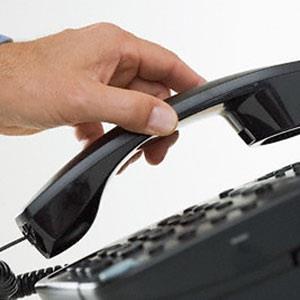Don't fall for this jury duty scam
Get a call about missing jury duty? Don't fall for it -- and certainly don't pay out! It's a scam that is making the rounds, experts warn.
By Mitch Lipka
 If you get a call that claims you missed a jury duty assignment, watch out if the caller asks you to pay a fine. It's a scam that's running hot right now -- prompting a spate of warnings.
If you get a call that claims you missed a jury duty assignment, watch out if the caller asks you to pay a fine. It's a scam that's running hot right now -- prompting a spate of warnings.Officials scattered from Massachusetts to South Carolina and Alabama to California and Utah have put out the word about residents getting shaken down to clear their records. Often the calls come from out of state, but because caller ID can be faked, they can also appear to be coming from the local courthouse or a law enforcement agency.
The most likely people to fall for this sort of scam are older folks who think they are doing the right thing and want to avoid getting a bad mark on their record, said Eduard Goodman, chief privacy officer of the personal security firm IDT911. Plus, he said, the calls can be quite convincing -- right down to including background noise that makes it seem like the call is coming from a police station.
The set-up can be so sophisticated, Goodman said, that it could involve one call that pretends to be from the court system -- which is recorded to allow the scammers to pick up on clues that can be used on a follow-up call that pretends to be from the police.
In addition, scammers can collect information by other means to make it seem as though they know more about you, lending some additional credibility.
"We suspect that this scam relies heavily on social media to piece together information about the victims, particularly who their friends and relatives are," Goodman said. "In some reports we’re hearing about scammers contacting the victim’s girlfriend, spouse, friend or roommate to put pressure on the victim or as an alternate source of scam money."
These scams provide plenty of red flags, but you have to be aware of them since the calls themselves can be quite convincing.
Goodman said the first thing to be aware of is that the police aren't going to call you to let you know they have a warrant for your arrest.
No comments:
Post a Comment